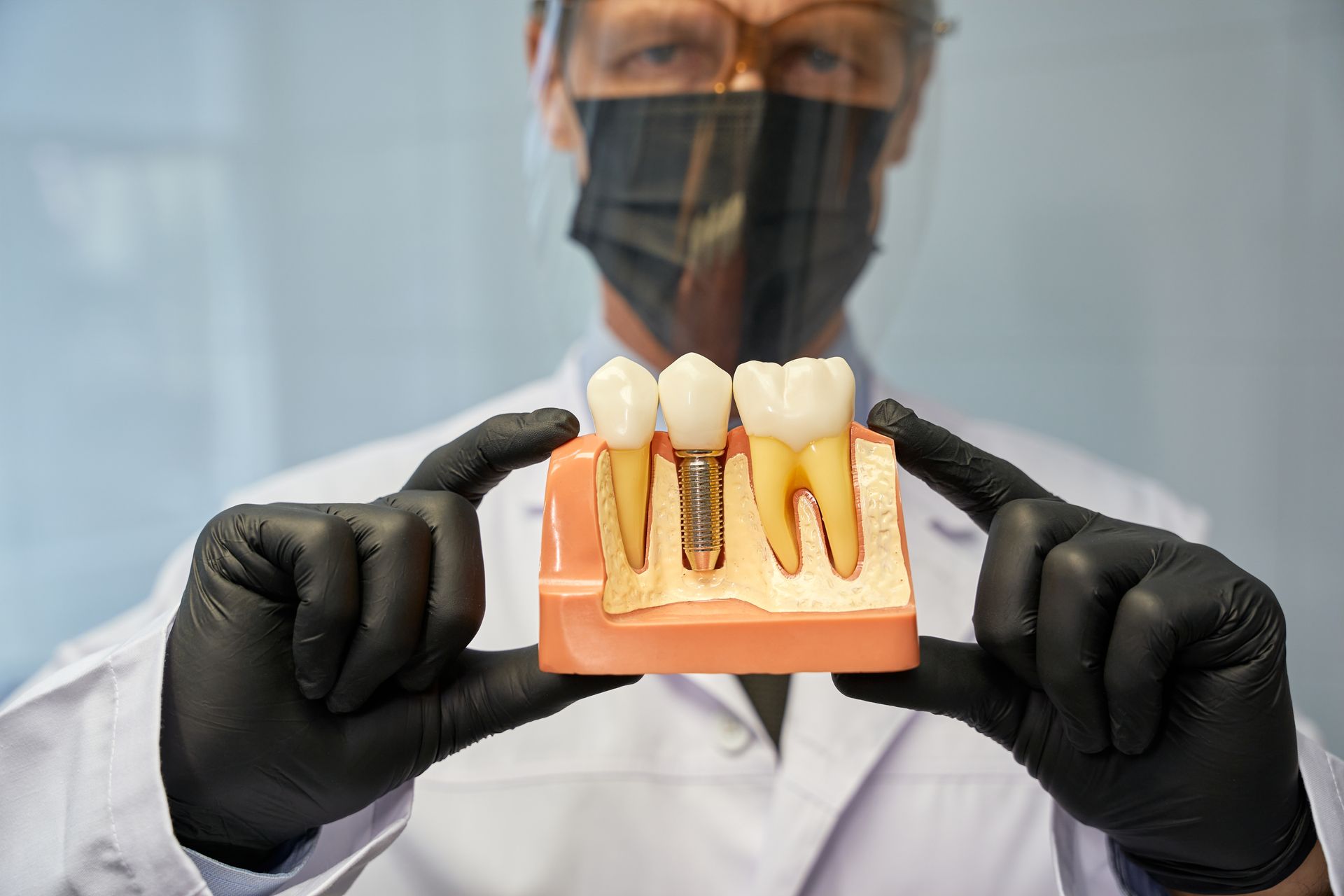Can You Replace a Tooth After Extraction? Here's What You Need to Know

At Tampa Dental Implant, we’ve helped hundreds of patients restore their smiles with expert dental implant solutions. With years of experience in tooth replacement and implant dentistry, our team understands the physical, emotional, and functional challenges that come with missing teeth, especially after an extraction. That’s why we’ve created this guide to clearly explain your options and answer a common question: Can you replace a tooth after extraction?
Yes, you absolutely can and should replace a tooth after it’s been extracted. Below, we’ll walk you through the why, when, and how, so you can make the best decision for your oral health.

Why Replacing a Missing Tooth Matters
Consequences of Not Replacing a Tooth
When a tooth is removed, the space it leaves behind can create more problems than most people realize. Without a replacement, surrounding teeth may shift, affecting your bite and overall comfort.
Impact on Jawbone Health and Alignment
Tooth roots stimulate your jawbone. When they're gone, the bone can start to shrink, a process called bone resorption. This not only affects your appearance but may limit future dental implant options.
Aesthetic and Functional Issues
Missing teeth can affect your ability to chew and speak. They can also change the way your smile looks, which may impact your confidence.
When Can You Replace a Tooth After Extraction?
Immediate vs. Delayed Replacement
In many cases, you can replace a tooth immediately after extraction, often with a dental implant placed the same day. However, not everyone is a candidate for same-day implants. Sometimes, it's better to wait several weeks for the area to heal before placing a replacement. Learn more about emergency dental implants if you need fast solutions.
Factors That Influence Timing
The right timing depends on:
- Your overall oral health
- Whether there was an infection
- How much bone is present in the area
- Healing speed and tissue condition
Your dentist will evaluate these factors before recommending immediate or delayed tooth replacement.
Your Tooth Replacement Options After Extraction
Dental Implants
Dental implants are the most natural and long-lasting option. They involve placing a titanium post in the jawbone that acts like a tooth root, topped with a realistic-looking crown. If you're wondering how long a dental implant lasts, they can serve you for decades with proper care.
For those replacing just one tooth, explore our guide on single tooth replacement. If you need to replace several teeth, learn about multiple teeth replacement options.
Dental Bridges
Bridges are a non-surgical option that "bridge" the gap using your nearby teeth as anchors. They’re ideal if you're not a candidate for implants or want a quicker fix.
Partial Dentures
These removable appliances can replace one or more teeth. They’re usually more affordable but may feel less stable compared to implants or bridges.
Temporary Solutions (Flipper Tooth, Immediate Dentures)
If you're waiting for a permanent solution, your dentist might suggest a flipper or temporary denture. These help maintain appearance and function while your mouth heals. Read more about how dental flippers work and our dental flippers page for detailed information.
How to Choose the Right Tooth Replacement Option
Cost Considerations
Dental implants often cost more upfront but last longer and require less maintenance. Bridges and dentures may cost less initially but may need to be replaced over time. Check out our comprehensive guide on the cost of dental implants to understand your investment.
Durability and Maintenance
Implants can last 15 years or more with proper care. Bridges usually last 5–10 years. Dentures may need adjustments or replacements more often. Learn about dental implant maintenance to maximize the lifespan of your investment.
Suitability for Your Oral Health
Not everyone is a good fit for every option. Your dentist will consider your bone density, gum health, and overall oral condition before recommending a treatment. If you have insufficient bone, sinus lift surgery may be necessary to prepare for implants.
What to Expect During the Replacement Process
Pre-Treatment Evaluation
Before any procedure, you'll have a consultation that may include digital X-rays or a 3D scan. This helps your dentist plan the best treatment path. If you're curious about the process, read our article on understanding recovery time for dental implant surgery.
Timeline for Each Option
- Implants: Can be immediate or may take 3–6 months if healing time is needed
- Bridges: Typically completed within 2–3 dental visits
- Dentures: May take several weeks to fit and adjust
Recovery and Aftercare Tips
Follow your dentist's instructions carefully. Maintain good oral hygiene, avoid hard foods, and attend all follow-up appointments to ensure healing goes smoothly. For specific guidance, check out the best way to eat with dental implants.
Final Thoughts on Replacing a Tooth After Extraction
Replacing a tooth after extraction is not just a cosmetic decision, it's essential for your long-term oral health. From preventing bone loss to restoring your bite, choosing the right solution can protect your smile for years to come.
Ready to Restore Your Smile?
If you're considering tooth replacement after an extraction, Tampa Dental Implant is here to help.
Schedule a consultation today to discuss your options and get expert guidance tailored to your needs.






